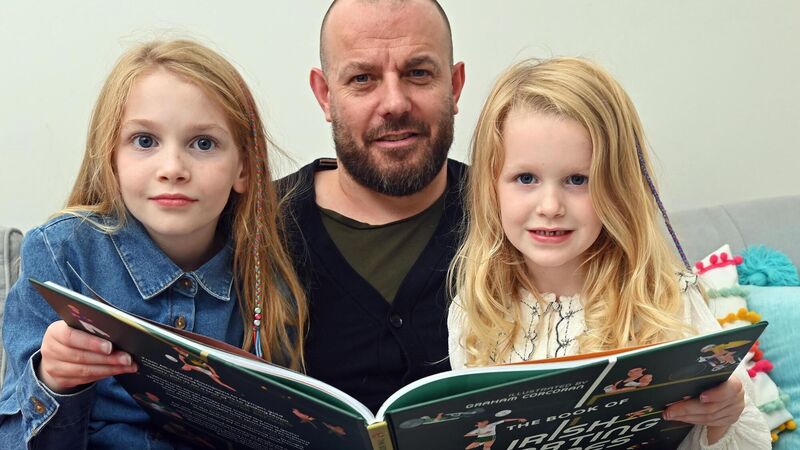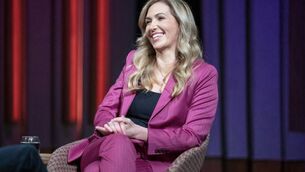Adrian Russell: Spotlighting sportswomen in The Book of Sporting Heroes

Author Adrian Russell with his daughters Robin and Ruby in Cork. Pic: Denis Minihane.
Having a new kids’ book out, I’m now on the school-visit circuit, along with fire-safety officers and the Lord Mayor.







